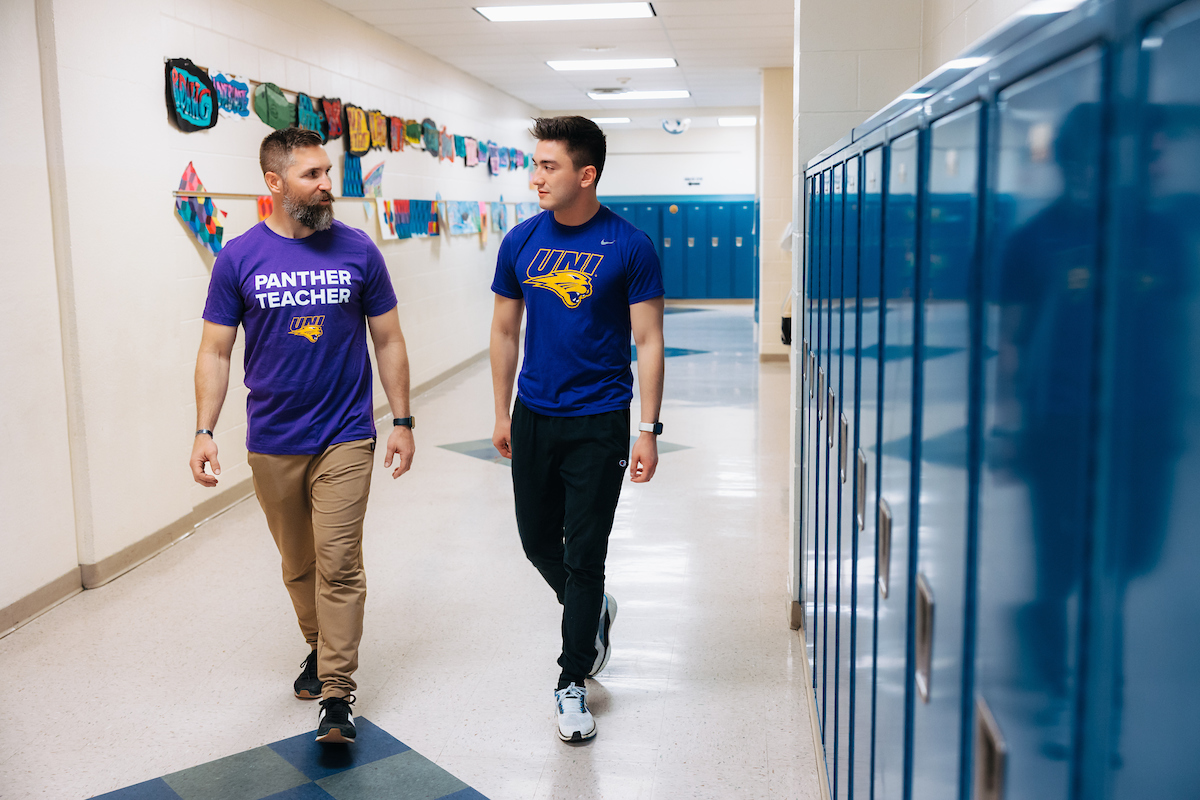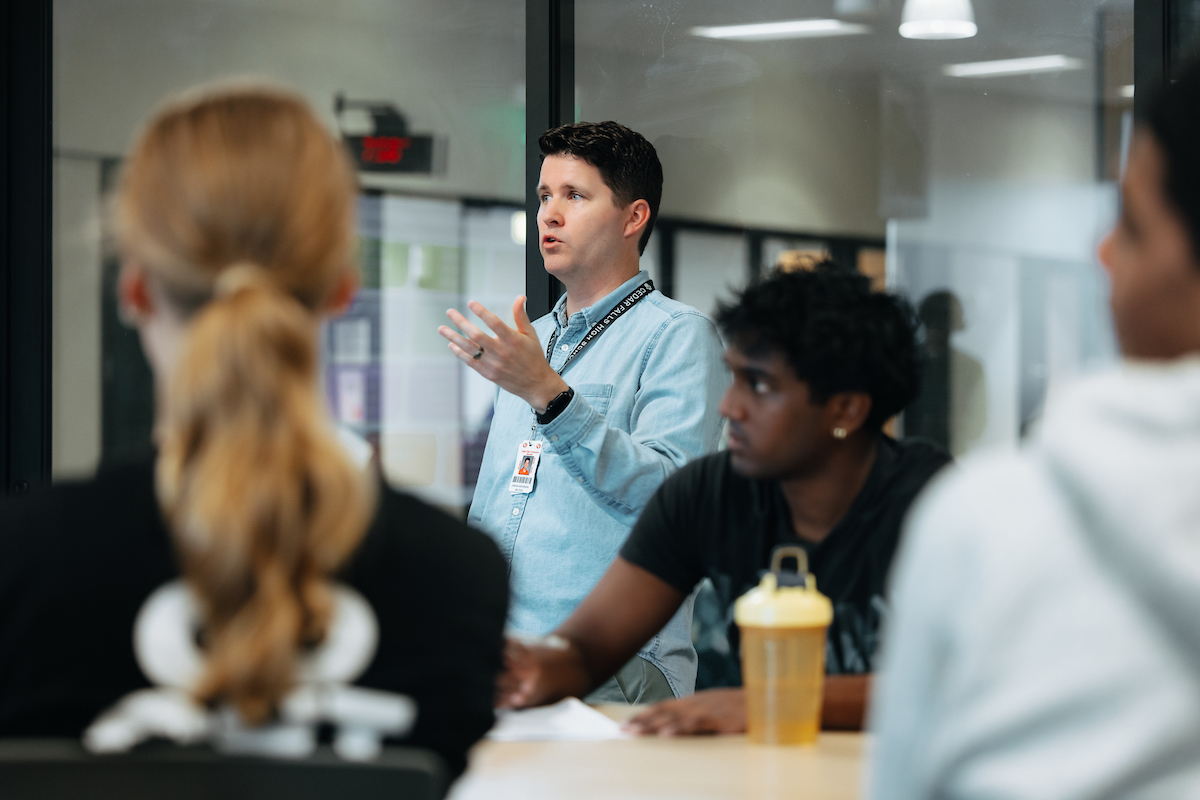Partners in Preparation
A robust collaboration that makes a (huge) difference
As a partner with UNI Teacher Education, you play a vital role in the future success of our students. Our goal is to ensure best practice, quality school placements which support the development of teachers who are competent in content skills, classroom management and knowledge of individual student learning needs.
Through collaboration with school districts and mentor teachers, the clinical placement team within the College of Education Advising and Teacher Education Success (CATS) Office contracts with schools near and far, including more than 90 school districts in Iowa. This leads to more than 2,500 placements annually at all levels, including 500 to 700 student teaching placements.
Together, we ensure meaningful, hands-on professional education for teacher education students of all levels as they observe, learn and teach.
Are you an administrator interested in becoming a contracted school district, or an in-service teacher willing to serve as a cooperating teacher? Contact teachereducation@uni.edu to verify that UNI has a contract with a school. If no agreement exists, we can start the process of creating a contract, which usually takes 30 to 60 days.
Working Hand in Hand for Student Success

The level of your support is unique and part of the lifeblood of this institution and our teacher education program.



An Extraordinary Effort
Professional education for UNI Teacher Education is truly collaborative. About 1,000 mentor teachers assist UNI annually with an average each semester of:
- 250 Teaching Internship 1 placements
- 250 Teaching Internship 2 placements
- 500 to 700 student teaching placements (reflecting two eight-week placements each term)
Coordinators within the College of Education Department of Educational Foundations and Professional Experiences supervise the majority of secondary education-related student teaching while counterparts in Elementary and Middle Level Education and Literacy, Early Childhood and Special Education work with elementary and early childhood education students. Internships 1 and 2, paired with methods courses, bring together internship coordinators, methods faculty and mentor teachers to ensure integrated, complementary experiences.
The numbers are extraordinary, though not surprising, for one of the largest bachelor’s degree programs in teacher education in the nation.
For Mentor Teachers
 UNI’s cadre of outstanding mentor teachers for clinical experiences is integral to the quality of the Teacher Education program. Mentor teachers for clinical experiences have standard Iowa licensure and are recommended by their building principals and/or school site coordinators as good models for pre-service teachers. In addition, UNI strongly encourages mentor teachers to participate in workshops offered each semester for mentoring and the reduced-cost graduate course, TEACHING 5133 Mentoring Pre-service Teachers. More than 350 area teachers have completed this course to date.
UNI’s cadre of outstanding mentor teachers for clinical experiences is integral to the quality of the Teacher Education program. Mentor teachers for clinical experiences have standard Iowa licensure and are recommended by their building principals and/or school site coordinators as good models for pre-service teachers. In addition, UNI strongly encourages mentor teachers to participate in workshops offered each semester for mentoring and the reduced-cost graduate course, TEACHING 5133 Mentoring Pre-service Teachers. More than 350 area teachers have completed this course to date.
Below are general roles and responsibilities for mentor teachers in every level of experience.
General Roles and Responsibilities
- Communicate willingness to mentor pre-service teachers to principal or school site coordinator(s), indicating preferences for level and type of experience
- Model a variety of effective strategies in the classroom
- Communicate with field experience students regarding their teaching practices, including but not limited to beliefs, strategies, management techniques, procedures, and relationship building
- Encourage appropriate level of active engagement in classroom by pre-service teachers and provide a variety of interaction opportunities
- Communicate concerns and questions to the field experience coordinator, the UNI professor of record or professor-in-residence.
- Evaluate the pre-service teacher’s progress and submit timely evaluations to the university
